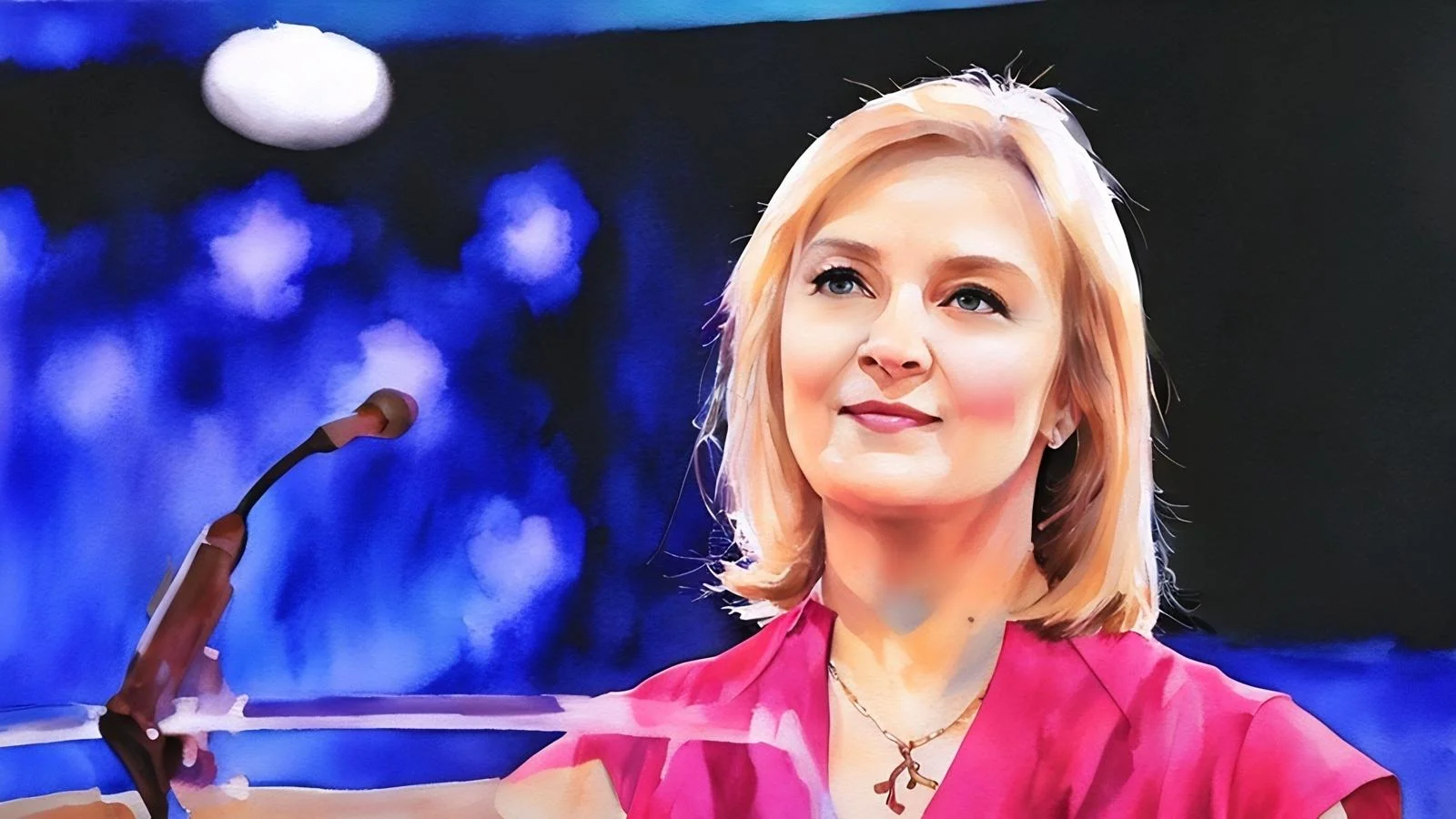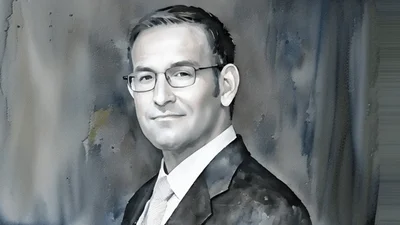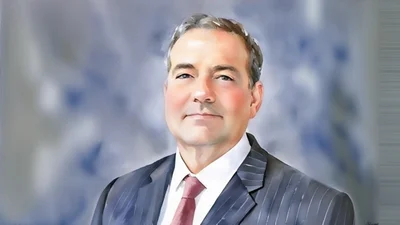Western democracies are debating censorship and the proper limits of government power. Former British Prime Minister Liz Truss says the debates have real consequences for free societies. On a recent visit to the United States, she discussed the threats to liberty in the UK and Europe, the dangers of unaccountable institutions, and why conservatives must build stronger international networks to defend Western civilization.
Truss grew up in the 1980s, which she says was a time of “the battle of big ideas … freedom versus control.” After working in the oil and telecommunications industries, she served as a Member of Parliament, then as a Minister for 10 years before becoming Prime Minister in 2022. “Even though a significant majority of us wanted to change things, we could change small things,” she says. But they were blocked from bigger pursuits, she says, “like how much the country was being taxed, how do you control the borders.” She was compelled to focus on deeper structural problems within Britain’s government.
Among her priorities was protecting free speech. “These are very ancient liberties in our country,” she says, citing rights codified in the Magna Carta and protections like a free press established in 1695. Yet successive governments, she says, have eroded those freedoms. “We saw Lucy Connolly, a mother jailed for 31 months for posting on X a tweet that she deleted four hours later,” she recalls. She also points to Graham Linehan, arrested at Heathrow Airport for a tweet he made while in America. “We are all wondering in Britain, how on earth did this happen?”
The goal is to “scare people so they don’t say anything,” she says, pointing to reports that “apparently 30 people are being arrested every day” in the UK over speech violations. Such policies, she adds, are driven by lobbying groups that have “captured the bureaucracy” and even the police.
Another danger comes from quasi-non-governmental organizations, or quangos. “In Britain, we have 440 quangos that are paid for by the taxpayer–nobody elected the people that are running these organizations and they can’t find them either,” she says. Now, “they have grown in power.” She cites the British Post Office scandal, where mismanagement ruined local businesses and led to wrongful prosecutions. “Nobody ever gets held to account for these failings, right? Because they can’t be voted out.”
The United States has a vital role in pushing back, according to Truss. “USAID was funding a lot of this stuff,” she says.
She also wants conservatives to coordinate internationally. “Conservatives need to be out there fighting and sharing experience, but also collaborating to take on this network because it is a network of people who want to destroy our civilization–that is the bottom line.”
Truss points to global institutions like Davos, which she says have pulled businesses and governments toward elite-driven goals such as ESG standards and net-zero pledges. “The same way as the left took over the universities, they took over the bureaucracies,” she says. Now, “they’ve co-opted the corporate world,” through what she describes as “just absolutely economically suicidal stuff.”
Truss says these problems lie in the structure of modern states. “We’ve got a problem with the mainstream media, we’ve got a problem with the sort of business elite,” she says, including “the very structure of our state.” Restoring the power of elected leaders is essential, she says. In Britain, this means, “we have to restore the power of Parliament and the power of the Prime Minister to actually do things.”









